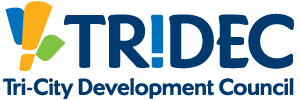Tax Structure
Businesses operating in Washington State are subject to three major taxes-either administered or overseen by the Department of Revenue. These taxes are:
- Business and Occupation Tax (B&O)
- Retail Sales and Use Tax
- Property Tax
Business and Occupation (B&O) Tax
Washington, unlike many other states, does not have an income tax. Washington’s B&O tax is calculated on the gross income from activities. This means there are no deductions from the B&O tax for labor, materials, taxes, or other costs of doing business.
The B&O tax has low flat rates and is easy to calculate, since the tax is based on the gross receipts of the business.
Although there are over 30 business activities defined by the Department of Revenue, four major categories and their associated tax rates are:
- Retailing (0.00471);
- Wholesaling (0.00484);
- Manufacturing (0.00484);
- Services and Other (0.018).
The B&O tax rate varies by classification. Once the company knows which classification the business fits into they can find the rate that corresponds to their classification on the list of B&O tax rates. If the company is not sure of their classification, see the tax classifications for common business activities page or the list of tax classification definitions.
The B&O tax is not a unitary tax since it only applies to activities occurring within Washington.
When the B&O tax is compared to a corporate income tax, the amount payable is generally less, which is particularly beneficial to businesses with large profit margins. However, a similar comparison of the B&O tax to a corporate income tax reveals that the B&O tax is less beneficial to start-ups and businesses with small profit margins.
Current B&O tax credits for business expansion or relocation in Benton and Franklin counties include credits for new jobs created, as well as high technology and small business credits.
The major B&O tax credits are:
- Rural County B&O Credit for New Employees
- High Technology B&O Tax Credit
- Small Business B&O Tax Credit
- Multiple Activities Tax Credit (MATC)
Retail Sales and Use Tax
The retail sales tax is Washington’s principal tax source. It is applied to purchases of tangible personal property and some services. The use tax is also applied to goods and services when the sales tax has not already been paid.
While sales and use tax rates vary according to location, the tax includes the state rate of 6.5% and a local rate averaging 1.9% state wide. In the Tri-Cities area, the rate is 8.6%.
Businesses engaged in manufacturing activities are not required to pay sales or use tax on machinery and equipment used directly in manufacturing operations. Charges made for labor and services for installing the machinery and equipment are also exempt.
Businesses do not pay sales and use taxes on the purchase of materials that are to become components of finished products for sale. Qualified firms are allowed to defer/exempt payment of the sales and use tax on new or expanded facilities.
Property Tax
Property taxes have state and local tax components. Rates vary by location and taxes are based on the assessed value of property.
Some categories of property exempt from property tax include business inventories; currency, bank deposits, stocks and bonds, household goods and personal items.
- Benton County average Property Tax is $11.79 per $1,000 assessed value.
- Franklin County average Property Tax is $9.85 per $1,000 assessed value.
- Washington State’s average Property Tax is $12.25 per $1,000 assessed value.


